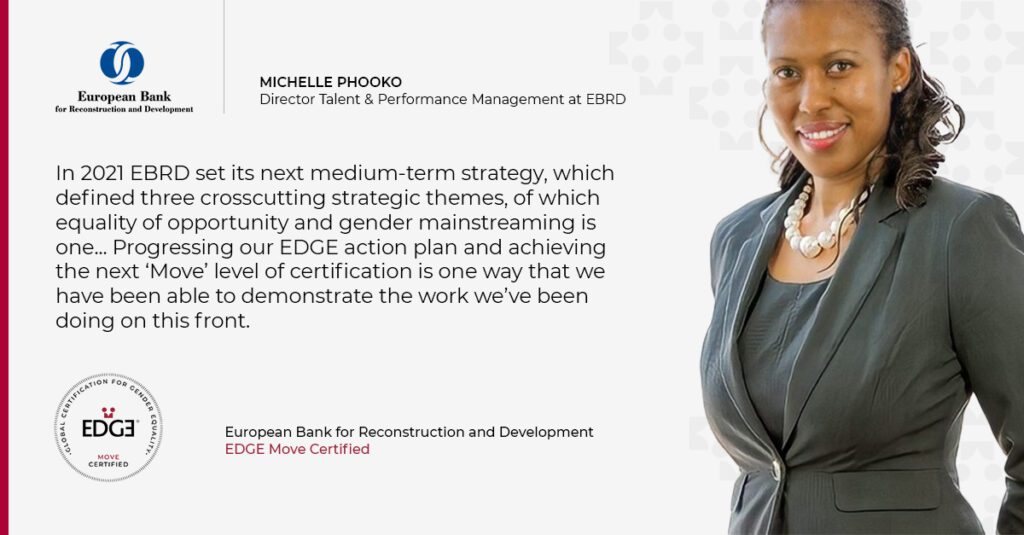How did the business case for gender balance DE&I evolved over the last 18 months?
Michelle Phooko: In 2021 EBRD set its next medium-term strategy, which defined three crosscutting strategic themes, of which equality of opportunity and gender mainstreaming is one. Making this commitment as an organisation means that we must ensure we are also progressing and upholding our commitments to gender equality from an internal perspective. Progressing our EDGE action plan and achieving the next ‘Move’ level of certification is one way that we have been able to demonstrate the work we’ve been doing on this front.
EDGE Certification brings visibility and credibility to the change happening inside the organization. At the same time, it creates the premises for diverse talent to thrive at work. Tell us some stories about how your employees benefit from the EDGE Certification journey of your organization.
Michelle Phooko: We hear from staff that they appreciate the Bank’s commitment to such a thorough certification process which communicates transparently on our data, as well as on our policies and practices. This transparency, combined with a public commitment to actionable improvements, allows us to measure tangible progress and hold ourselves accountable to our staff. We also know that our staff value the independent audit, as it ensures a fair analysis and outcome without any potential bias.
What do you think workplace gender balance, diversity and inclusion means to the next generation (e.g., of leaders / customers / investors)?
Michelle Phooko: The next generation will want to see tangible diversity and inclusion progress within the workplace. For the EBRD, this comes back to the Bank’s mission and strategic priority, as we know that without equality of opportunity, pools of talent will remain untapped and unproductive. It is vital that we work hard to ensure we practice what we preach, and that we are transparent and honest in order to attract future talent and remain an attractive employer.






